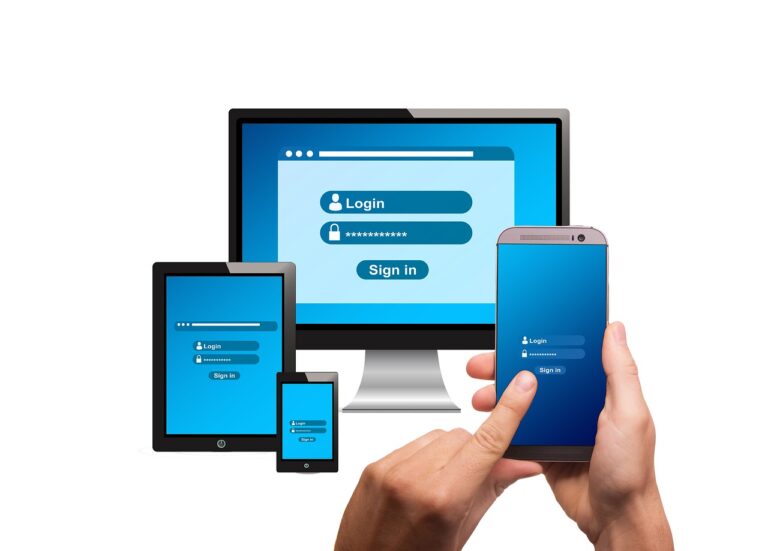Learn about Technology
Tech Blog
Let's talk about Passwords
Passwords are the keys to your digital life. Just like your housekeys, you want to do everything you can to keep your passwords safe.
Given that 68% of users reuse the same security password across several accounts, data, privacy, and cybersecurity are at danger as a result of hackers’ persistent efforts to develop new methods to steal your information.
Let’s see how to be secure online !

Creating, storing and remembering passwords can be painful for all of us online, but the truth is that passwords are your first line of defense against cybercriminals and data breaches.
| Default passwords are NOT secure. Put cybersecurity first and secure all internet-connected devices before using them. #BeCyberSmart #CybersecurityAwarenessMonth |
Here are some concrete steps you can take to become cyber smart.
Use LONG, UNIQUE, COMPLEX passwords
A strong password is your first and most essential line of defense against a cyber attack. If you’re like most people, you need strong passwords more than ever now that you’re relying on the internet so much during the pandemic.
Set a strong, unique password on each one of your online accounts and update it on a regular basis. A strong password is at least 16 characters long and includes a mix of capital and lowercase letters as well as numbers and symbols.
This might feel like a chore if you’re manually managing your passwords, especially if there are a lot of them to keep track of. A password manager comes in handy in just these kinds of situations, helping you automatically generate and easily update all of your passwords. A password manager can also give you the heads up when one of your passwords is too weak or when it has appeared in a data breach. That way, you can replace that password with a stronger, more effective one.
- LONG – Every one of your passwords should be at least 12 characters long.
- UNIQUE – Each account needs to be protected with its own unique password. Never reuse passwords. This way, if one of your accounts is compromised, your other accounts remain secured. We’re talking really unique, not just changing one character or adding a “2” at the end – to really trick up hackers, none of your passwords should look alike.
- COMPLEX – Each unique password should be a combination of upper case letters, lower case letters, numbers and special characters (like >,!?). Again, remember each password should be at least 12 characters long. Some websites and apps will even let you include spaces.

Protect your Internet of Things devices with smart password security
The IoT is making our lives incredibly convenient, but that convenience can be a little too seductive at times. It’s easy to forget that smart home devices, harmless-looking and helpful as they are, can be targeted in cyber attacks just like our computers and phones. Hackers are counting on you to leave your IoT gadgets unprotected so they can use them to launch damaging attacks. By following these smart IoT security tips, you can have the best of both worlds, enjoying your smart life and better peace of mind at the same time.
What if you lose your password ?
Perhaps you’ve forgotten your password or you’ve reformatted your computer . Most organizations have procedures for giving you access to your information in these situations. For the best security, keep information on your account up to date. This includes alternate email addresses or phone numbers that can help verify your identity if you forget your password.
You may just need a reminder.
No matter what happened, the organization needs a way to verify your identity. To do this, many organizations rely on secret questions.
When you open a new account (e.g., email, credit card), some organizations will prompt you to provide them with the answer to a question. They may ask you this question if you forget your password or request information about your account over the phone. If your answer matches the answer they have on file, they will assume that they are actually communicating with you. In theory, secret questions and answers can protect your information. However, common secret questions ask for mother’s maiden name, social security number, date of birth, or pet’s name. Because so much personal information is now available online or through other public sources, attackers may be able to discover the answers to these questions.
Treat the secret question as an additional password—when establishing the answer, don’t supply real information. Choose your answer as you would choose any other good password, store it in a secure location (e.g., in a password manager), and don’t share it with other people.
While additional security practices offer you more protection than a password alone, they should not be considered completely effective. Increasing the level of security only makes it more difficult for attackers to access your information. Be aware of MFA and other security practices when choosing a bank, credit card company, or other organization that will have access to your personal information. Don’t be afraid to ask what kind of security practices the organization uses.